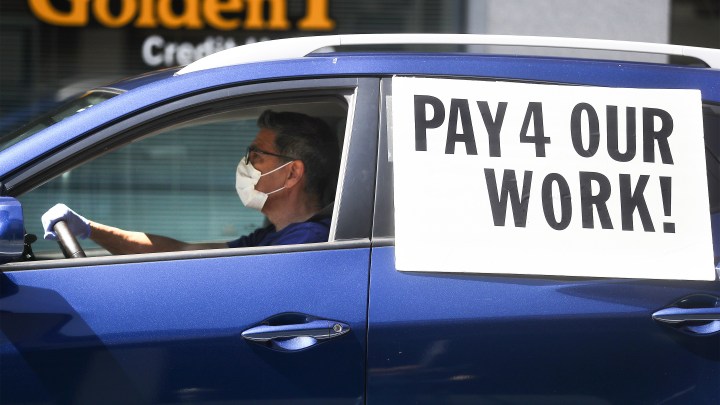
How does a worker become “misclassified”?

While working on this season of “The Uncertain Hour,” we heard a lot of words and phrases that sounded weird to our ears. So each week we’re going to explain a bit of jargon. To get a new “Uncertain Term” in your inbox, subscribe to our newsletter! To go with our third episode, this week’s Uncertain Term is “misclassification.”
We know what misclassification means, generally. It’s assigning someone or something to the wrong category. But when it comes to employment law, misclassification has a very specific meaning: It’s when a company incorrectly treats workers who are employees as independent contractors. And as we’ve seen with Jerry Vazquez and his case against franchiser Jan-Pro, it’s not always clear whether the way someone was classified was right or wrong. Jerry says he was misclassified. Jan-Pro says he wasn’t. They’re litigating that question in court.
And so are a lot of other companies. Ride-hailing apps, home health care providers, strip clubs, nail salons and delivery companies have faced misclassification claims from their fleets of drivers and independent contractors. Other companies (and scores of employment lawyers) have been watching the proceedings closely; some of those lawsuits could have big implications for all kinds of businesses that hire independent contractors.
Employees are often entitled to minimum wage, workers’ compensation, unemployment benefits and other protections. Independent contractors, by contrast, are supposed to have more control and autonomy over how they manage their business — and more agency in its success or failure.
Occasionally, state and federal labor agencies publish guidelines on how they interpret and enforce employment laws. But with a change in leadership, those frameworks can change — as was the case under the Trump administration and may again be the case as the Biden administration prepares to roll back some of those changes.
In California, lawmakers concerned that companies were increasingly using independent contractor classifications to skirt responsibilities toward their workers joined a growing number of states that have passed legislation to narrow the definition. That could make it more difficult for companies to claim some of their workers as independent contractors. Uber, Lyft and DoorDash fought back, spending $200 million on a ballot measure that exempted app-based drivers from the law. It passed.
There’s a lot happening in the world. Through it all, Marketplace is here for you.
You rely on Marketplace to break down the world’s events and tell you how it affects you in a fact-based, approachable way. We rely on your financial support to keep making that possible.
Your donation today powers the independent journalism that you rely on. For just $5/month, you can help sustain Marketplace so we can keep reporting on the things that matter to you.












